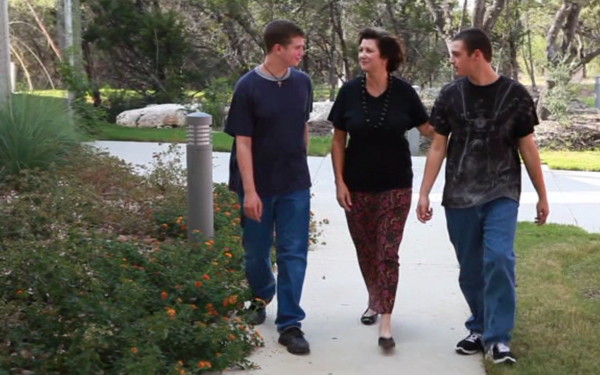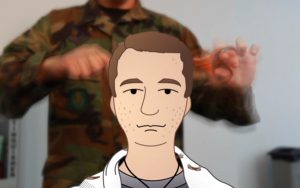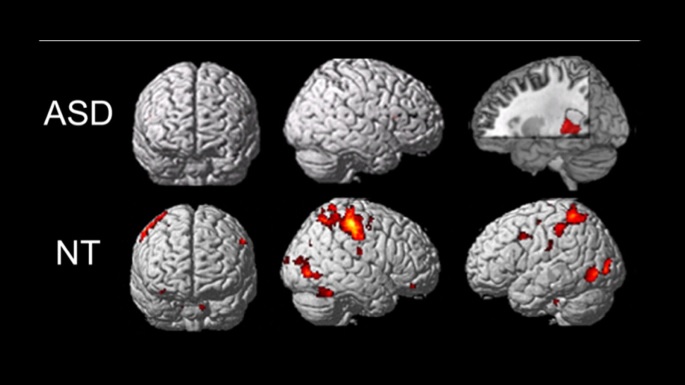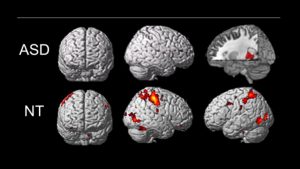DIR/Floortime Method for Social-Emotional Growth of Children with ASD
Although our emphasis is often focused on early intervention, it is important to consider various types of interventions that can grow with the child with Aspergers or HFA as they grow into adolescence, another area of huge potential growth. One approach that has demonstrated clinical impact is DIR/Floortime. This method is a relationship-based, developmental framework that is geared toward supporting foundational social-emotional capacities.

The DIR Model, or Floortime, aims to support higher level thinking abilities of multicausal and reflective thinking by building foundational stability in self-regulation and co-regulation with another. DIR/Floortime incorporates techniques and strategies geared toward promotion of more stable and more flexible emotional regulation in the child or adolescent.







 This is the third installment of my piece speaking about the health of a caregiver and it has been an interesting journey these past weeks. We as caregivers get in such and stay in such serious modes, that sometimes it takes something drastic to pop us out of our self imposed prisons of heaviness and sometimes fear. It was almost two years ago to the date that in San Antonio and much of Texas it full on snowed! Now for some of us who were raised around snow, (my parents were bi coastal people), this could have seemed mundane but it was not anything of the sort. I was so happy and joyful that it was snowing, I surprised myself and as I looked around me, everyone and I mean everyone was smiling and laughing and making snowballs and snowmen. Then it hit me, it hit me why I had to wait till this very moment to write this very thing. Life and it’s tragedies are real but in those moments of lifting and or explaining, or seeing people’s faces in reaction to perhaps a behavior your person was exhibiting, in those moments the divine breaks in. Now maybe it’s not snow in the south or something as drastic as that but I believe wholeheartedly that we are given sweet miracle moments that release us from the prison and remind us that we are free to live and enjoy and to find joy in the big and little things in life. I can tell you, I love each and every one of you who are struggling to be, when you don’t even know if you can put one foot in front of the other. I send you thoughts and knowledge that you can find the divine and joy in your task of caregiving, you just have to seek them, to go after them because joy can seem fleeting like the melting snow but the take away is this. When we can choose to see the beauty in a smile, or in a victorious moment where we somehow connect to and with our people, then that is where we see the miracles happen of this season and all year round . We may feel exhausted and cranky sometimes as caregivers but let us remember the beauty we are giving we get back in unexpected ways. Seek those moments and I know you will not be disappointed.
This is the third installment of my piece speaking about the health of a caregiver and it has been an interesting journey these past weeks. We as caregivers get in such and stay in such serious modes, that sometimes it takes something drastic to pop us out of our self imposed prisons of heaviness and sometimes fear. It was almost two years ago to the date that in San Antonio and much of Texas it full on snowed! Now for some of us who were raised around snow, (my parents were bi coastal people), this could have seemed mundane but it was not anything of the sort. I was so happy and joyful that it was snowing, I surprised myself and as I looked around me, everyone and I mean everyone was smiling and laughing and making snowballs and snowmen. Then it hit me, it hit me why I had to wait till this very moment to write this very thing. Life and it’s tragedies are real but in those moments of lifting and or explaining, or seeing people’s faces in reaction to perhaps a behavior your person was exhibiting, in those moments the divine breaks in. Now maybe it’s not snow in the south or something as drastic as that but I believe wholeheartedly that we are given sweet miracle moments that release us from the prison and remind us that we are free to live and enjoy and to find joy in the big and little things in life. I can tell you, I love each and every one of you who are struggling to be, when you don’t even know if you can put one foot in front of the other. I send you thoughts and knowledge that you can find the divine and joy in your task of caregiving, you just have to seek them, to go after them because joy can seem fleeting like the melting snow but the take away is this. When we can choose to see the beauty in a smile, or in a victorious moment where we somehow connect to and with our people, then that is where we see the miracles happen of this season and all year round . We may feel exhausted and cranky sometimes as caregivers but let us remember the beauty we are giving we get back in unexpected ways. Seek those moments and I know you will not be disappointed.








